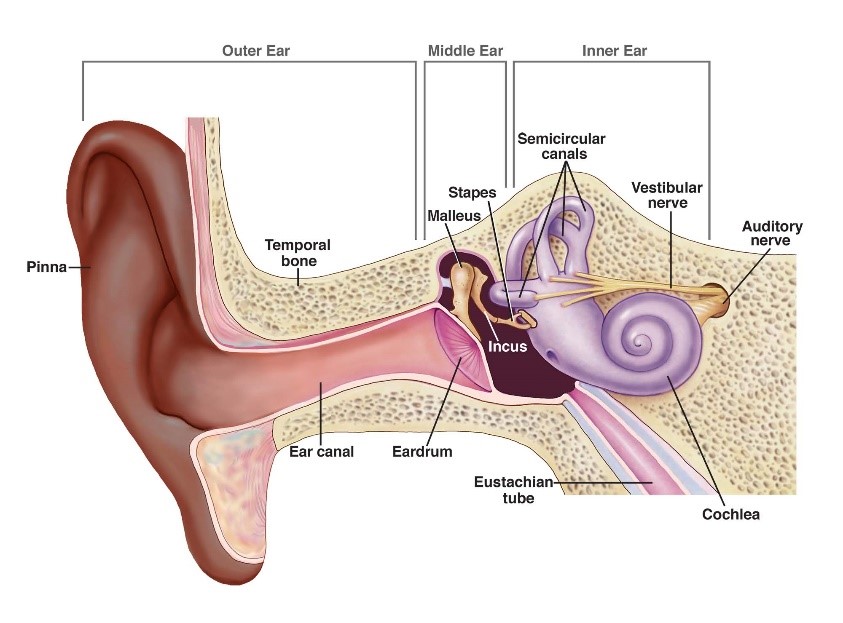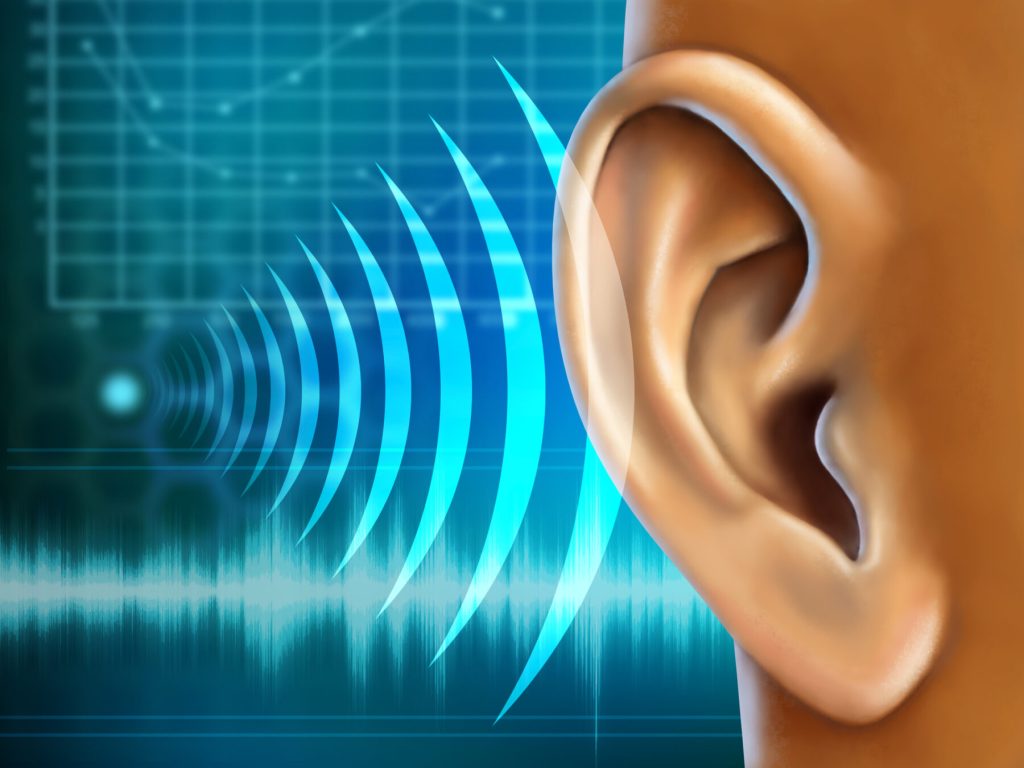- Phone :8424935000
- Phone :9821593825
- Branch :CBD & KHARGHAR
- Enquery Now
Types of Hearing Loss
Understanding the type of hearing loss is crucial for determining appropriate treatment options and management strategies. If you suspect you or someone you know has hearing loss, seeking evaluation by a qualified audiologist or healthcare professional is recommended
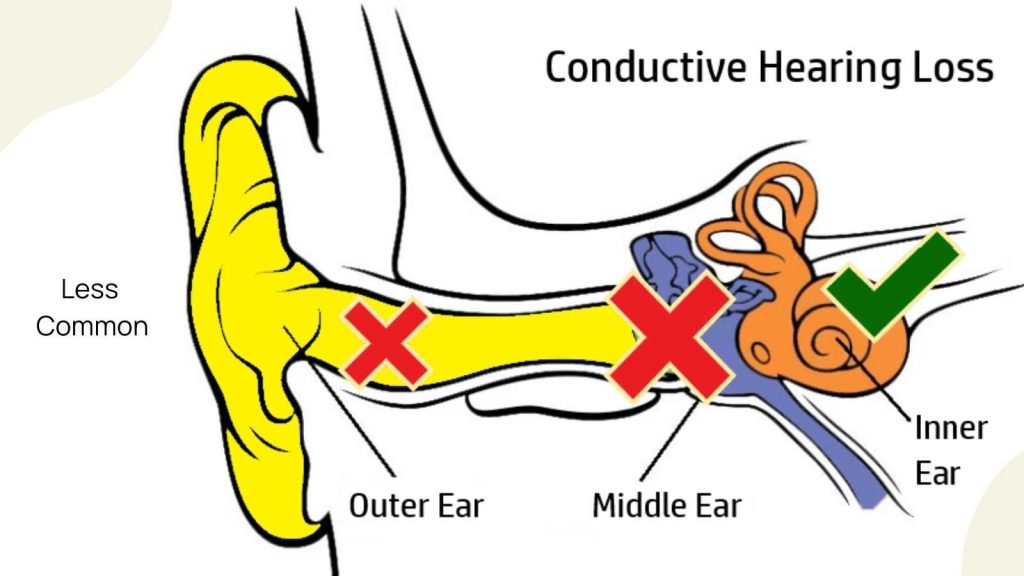
Conductive Hearing Loss
This type of hearing loss occurs when sound waves are unable to reach the inner ear. It can be caused by conditions such as ear infections, fluid buildup, or blockages in the ear canal or middle ear.
Sensorineural Hearing Loss
Sensorineural hearing loss results from damage to the inner ear or auditory nerve. It is often caused by aging, exposure to loud noise, genetic factors, or certain medications. Sensorineural hearing loss is typically permanent and may require hearing aids or other interventions.
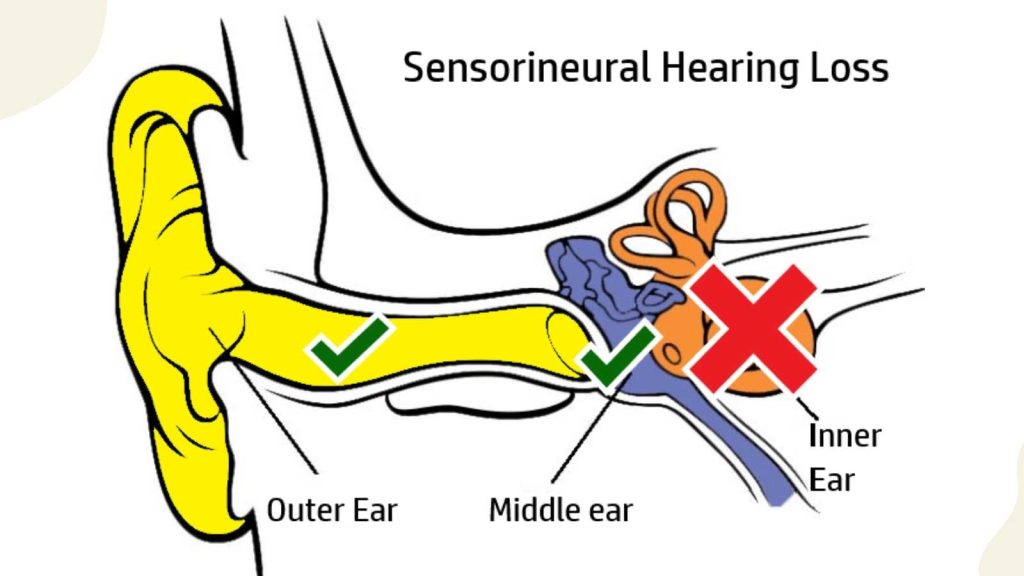
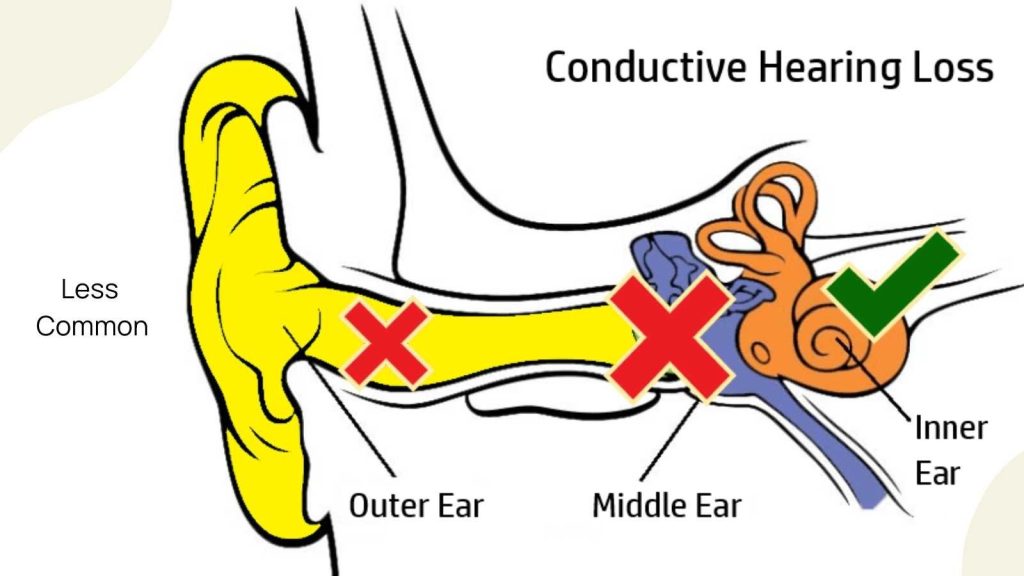
Mixed Hearing Loss
Mixed hearing loss is a combination of both conductive and sensorineural hearing loss. It can occur when there are issues in both the outer or middle ear and the inner ear or auditory nerve.
Neural Hearing Loss
Neural hearing loss, also known as auditory neuropathy, occurs when there is damage to the auditory nerve. This can disrupt the transmission of sound signals from the inner ear to the brain, resulting in difficulty understanding speech, even when sounds are audible.
